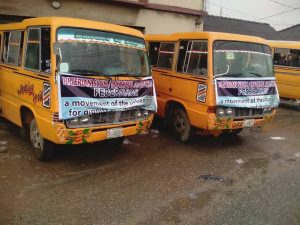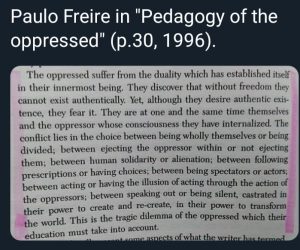
The issue of faith based school in the present day Nigeria has been of interest to me for a while even though I had avoided writing about it until now. To begin with, I had both my primary and secondary school education in schools founded by Christian missionaries during the colonial era . Those two schools remained strongly and heavily influenced by the faith denominations of the missionaries that established them, even while they were state owned when I attended them in the 1980s and 1990s. However, in the first decade of the 21st century the Lagos state government decided to return secondary schools that had missionary histories behind their establishments back to their missionary founders, which included both Christian and Muslim missionaries founded schools in the state.

While it is the responsibility of the state to provide education as a compulsory social good and public value, the then Lagos state government decided to return those schools without making any adequate provisions for families that might want state funded (public) education for their children within the neighbourhoods in which the schools that were returned to the missionaries were situated. This decision by the Lagos state government to return those schools back to their founders was argued for and against by those citizens concerned enough by the government’s decision. However, a closer scrutiny at the issue shows that at the heart of the issue were issues of faith, quality, social class, finance, income and social order.
Firstly, by returning those schools back to their founders it meant the respective missionary organisations that set up those schools at inception can formally entrench, implement and operate those schools based on their mission statements, ethos and values, and these aspects are usually influenced by the religious ethos and values of the operating missionary of any of the returned schools. While there is nothing wrong with institutions establishing and operating their schools based on certain ethos, beliefs and values, the state government as the custodian of public institutions have the duty, obligation and responsibility to provide means of cohesive social relationships among the citizens; a purpose that public schools in ideal situations fulfil.
So what am I driving at here? To answer that question, I’ll use my personal experience as a child in the public school system. I went to a Catholic secondary school but operated as a public school when I was there. However, it has since been returned back to the founders. While I was there the school had very strong Catholic ethos, but we were not compelled to attend the mass or partake in other religious activities of the school’s founders except the every morning assembly that was designed around Catholicism. Although, as a public school that could easily have been dealt with by the state’s ministry of education, if there was the political will to effect a more inclusive system, and this applies to other faith and non-faith based public schools in the state. But there is a very important message that I want to pass with my personal story in the school. For brevity and context’s sake, I would enumerate the basic points I want to highlight below:
- I was a Muslim child but allowed to attend the school.
- My parents were junior civil servants but I was able to be in the same class with children of top government officials and company executives. For instance, I was in the same classroom for years with the son of a then serving top military officer and government minister in the country.
- I had both Muslim and non-Muslim, particularly Christian classmates.
- I had friends who lived in high income areas like Ikoyi and Victoria Island, and at the same time I had friends who lived in socioeconomically disadvantaged communities in places on Lagos Island and Bariga.
- The school served a high number of children from the community and communities in which the school is situated, hence the school was in the true sense of it, an icon of the community.
- The school served many children from socioeconomically disadvantaged backgrounds.
With the enumeration above – to me – the school served as a means of socio-cohesion among children from diverse backgrounds, that in its present ownership structure, it would not be able to serve. Hence, the bigger challenge of return of schools to their missionary founders is less of religion affiliated matters and more of socioeconomic related issues. For instance, I had a classmate – who’s still a friend of mine – whose family are Catholics but by socioeconomic status would probably not have been able to afford to send him to the same school under its present ownership structure – the school has become a fee paying private institution – due to financial issues. However, a fundamental flaw by the state government, when they returned schools back to their missionary founders, was and still remains that they did not establish any new schools in those areas where they returned schools back to their founders.
By not establishing new schools to replace the returned ones and more importantly address the fundamental issue of providing state funded education to the state’s children of compulsory school age, the state government have been able to reduce their real education expenditures and commitment to the children, particularly those from disadvantaged backgrounds and communities that the returned schools used to serve.
To put things in perspective, I will use Lafiaji area on Lagos Island – where I grew up – as a case study. Almost all the public primary schools in the area were established by the Christian missionaries during the colonial era, and between then and now – almost six decades after independent – the state government have not established any new public primary school in the area but they’ve been able to reduce the schools in either their physical size or by merging two different schools into a single one. As for secondary school education, the existing public schools on Lafiaji were established in the early 1980s during the government of Alhaji Lateef Jakande, while some of the schools that served children from Lagos Island in nearby Obalende area have been returned back to their founders with the state government not establishing any new public school in the area.
So, to me, It’s a paradox whenever I listen to or read of nowadays politicians that are in government and claim Awoism or to be Awoists in their educational ideology, that is, they believe or follow in the educational ideology of late Chief Obafemi Awolowo; an educational ideology that was based on education as a social good or public value with equal rights and opportunities for all, irrespective of their backgrounds. However, we’re living in an absurdly interesting political time that is full of paradoxes, oxymora and ironies.
Please, leave your thoughts on this post in the comment section and feel free to share the article with your contacts.
Thanks for taking out of your precious time to read my article/s!
If you like this post, kindly subscribe and/or follow me on Twitter @otukogbe and @EdusoundsNg or on Facebook at edusoundsng.




